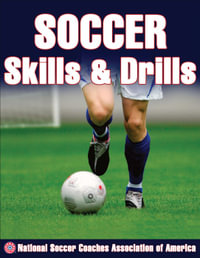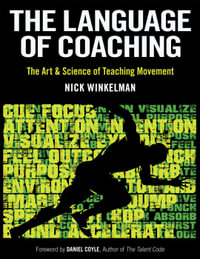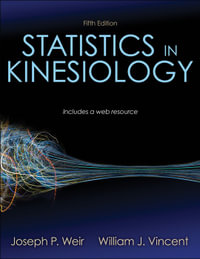Contributors
Prologue
Part I. Strengthening the Foundation of Ecological Task Analysis
Geoffrey D. Broadhead, PhD
Chapter 1. Task Constraints and Movement Organization: A Common Language
Karl M. Newell, PhD; and Kimberlee Jordan, PhD
Role of Constraints on Action
Mapping Movement to Task Constraints
Actions, Tasks, and Theories of Motor Learning and Control
Summary
Chapter 2. Functional Role of Variability in Movement Coordination and Disability
Richard E.A. Van Emmerik, PhD
Current Perspectives on Variability and Stability in Coordination
Role of Variability in Maintaining Stable Movement Performance
Role of Variability in Pattern Change
Assessing the Nature of Variability
Current Perspectives on the Role of Variability in Disability
Implications for Further Research and Clinical Practice
Summary
Chapter 3. Conceptualizing Choice as Central to the ETA Applied Model: Broadening the Vision
Walter E. Davis, PhD; and Joyce Strand, PhD
Conceptualization of Choice
How Choice Is Unnecessarily Eliminated
Implications for Instruction
Summary
Chapter 4. Perception-Action Judgments in Children With Learning Disabilities
Jill Whitall, PhD; Sarita Sanghvi, MPT; and Nancy Getchell, PhD
Methods
Results
Discussion
Future Research Directions Employing ETA
Summary
Chapter 5. Manipulating a Control Parameter in Overhand Throwing
Dan Southard, PhD
Methods
Results
Discussion
Summary
Part II. Enhancing Instruction Using Ecological Task Analysis
Geoffrey D. Broadhead, PhD
Chapter 6. Empowerment in Coaching
Lynn Kidman, PhD; and Walter E. Davis, PhD
What Is Empowerment Coaching?
Coach Questioning
Teaching Games for Understanding
Developing Team Culture
Case Study: Establishing Quality Team Culture
Summary
Chapter 7. Enhancing Responsible Student Decision Making in Physical Activity
Linda M. Carson, EdD; Sean M. Bulger, EdD; and J. Scott Townsend, EdD
Role of the Teacher in an ETA Approach
Implementing ETA in Physical Education
Practical Implications for Teaching Physical Education
Summary
Chapter 8. Ecological Task Analysis in Games Teaching: Tactical Games Model
Steve Mitchell, PhD; and Judy Oslin, PhD
Development of the Tactical Games Model
Actions as Relations, Not Parts
Tasks Categorized by Function and Intention
Essential and Nonessential Variables
Direct Links Between Task Goal and Constraints
Application of TGM to the ETA Applied Model
Summary
Chapter 9. Systematic Ecological Modification Approach to Skill Acquisition in Adapted Physical Activity
Yeshayahu Hutzler, PhD
Theoretical Foundation
Development of the Systematic Ecological Modification Approach
Selected Practical Examples of Ecological Modification
Summary
Chapter 10. Providing Decision-Making Opportunities for Learners With Disabilities
Jane Taylor, PhD; Donna L. Goodwin, PhD; and Henri¯âtte Groeneveld, PhD
Rationale for Providing Choice
Knowledge and Skills Needed for Implementing Choice
Teaching Choice: Role of the Instructor
Practical Tools for Applying ETA
Implications for Research
Summary
Chapter 11. Using Ecological Task Analysis in Physiotherapy
Gerald Mullally, MSc; and Mary Mullally, DipPhysio
Across the Motor Learning–Physiotherapy Divide
Ecological Task Analysis Applied to Physiotherapy
Organization of Therapeutic Play: Emphasis on Fluidity
Self-Regulation of Arousal
Ecological Task Analysis in Assessment Procedures
Implications for the Therapist's Role
Summary
Chapter 12. Ecological Approach to the Care of Persons With Neurological Disabilities
Adri Vermeer, PhD
Brain and Behavior
Approaches to Persons With Disabilities
Personal Experience Related to the Functional Model
Behavior and Development as Self-Organization
Implications for the Development of Physical and Social Well-Being
Outline of Context-Oriented Care
Summary
Chapter 13. Interface of the KB and ETA Approaches
A.E. Wall, PhD; Greg Reid, PhD; and William J. Harvey, PhD
Knowledge-Based Approach
Combining the KB and ETA Approaches
Summary
Epilogue
Walter E. Davis, PhD; and Geoffrey D. Broadhead, PhD
References
Index
About the Editors
























